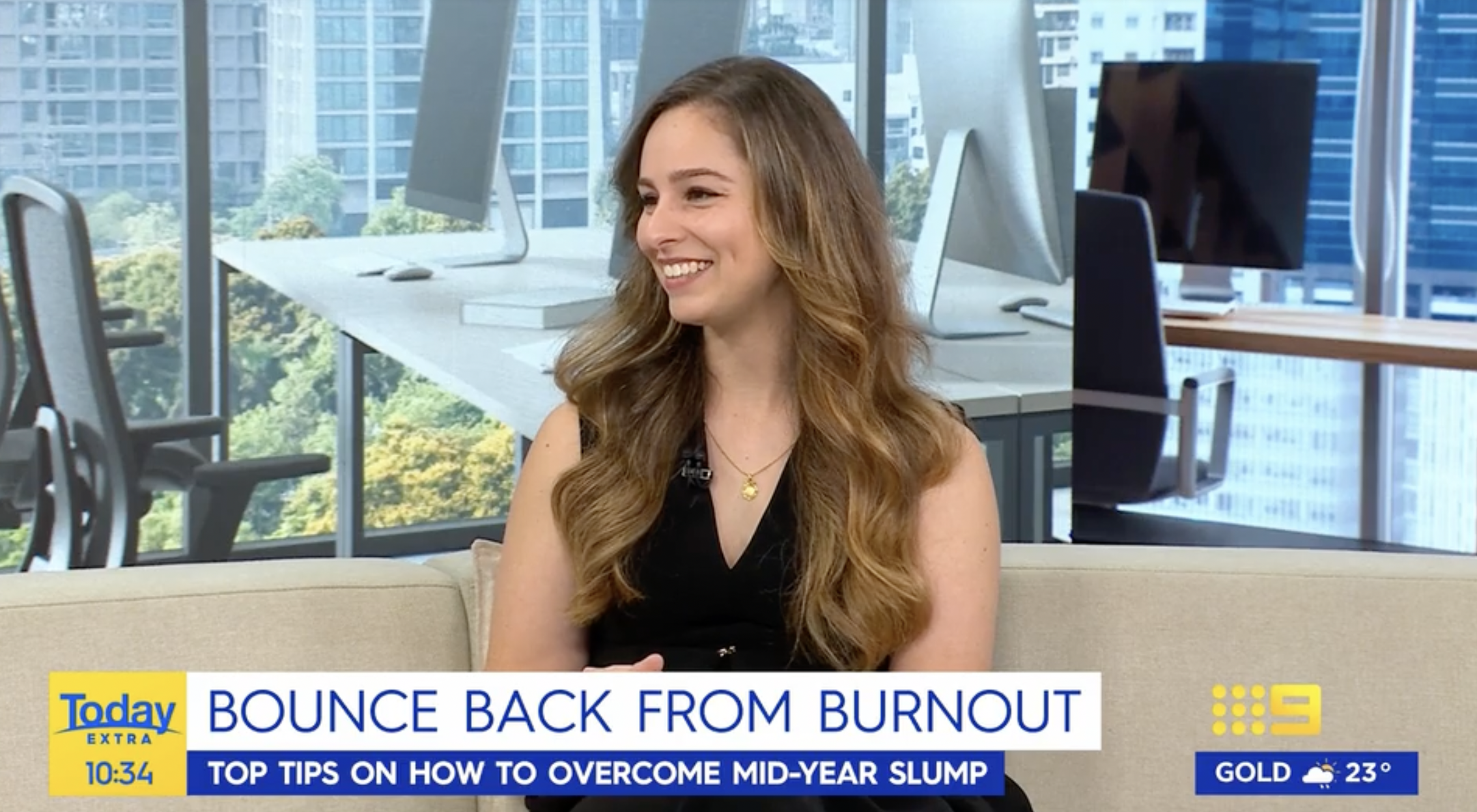Are you feeling exhausted, unmotivated, or struggling to find joy in things you once loved? You’re not alone—burnout is more common than ever, especially in our fast-paced, always-on world. Dr Anastasia Hronis, clinical psychologist and founder of The Australian Institute for Human Wellness in Kogarah, Sydney, recently appeared on TV to talk about burnout, its warning signs, and what you can do to recover. Watch the clip below, and read on for practical advice and science-backed strategies to help you regain balance.
What Is Burnout?
Burnout is more than just feeling tired. It’s a state of emotional, physical, and mental exhaustion caused by prolonged stress—often related to work, caregiving, or chronic life pressures. Symptoms can include:
Persistent fatigue, even after rest
Reduced performance and productivity
Cynicism or detachment from work or relationships
Difficulty concentrating or making decisions
Physical symptoms (headaches, stomach issues, sleep problems)
If these sound familiar, you’re not alone. Burnout can affect anyone, but it is especially common among high-achieving professionals, parents, carers, and those juggling multiple roles.
Why Burnout Happens: The Science Behind Stress
Our brains are wired for survival, not constant productivity. Chronic stress triggers a flood of stress hormones, including cortisol and adrenaline, which over time can disrupt our mood, motivation, and even our brain chemistry.
5 Practical Steps to Recover from Burnout
Acknowledge and Accept
Recognising burnout is the first step towards recovery. Give yourself permission to slow down and seek help.Set Boundaries
Learn to say no—or to delegate tasks. Protect your downtime and prioritise activities that recharge you.Reconnect with Your Values
Burnout often signals a disconnect between what you’re doing and what matters most. Reflect on your core values and make small changes to realign your daily life.Seek Support
You don’t have to go it alone. Talking to a psychologist can help you process your feelings, develop coping strategies, and rebuild resilience. Our team at The Australian Institute for Human Wellness offers both face-to-face and telehealth sessions for individuals, couples, and families.Prioritise Self-Care
Simple habits—like regular sleep, nutritious food, movement, and mindful breaks—can make a big difference. Remember, self-care isn’t selfish; it’s essential.
Why Choose The Australian Institute for Human Wellness?
Located in Kogarah, Sydney, our clinic is dedicated to proactive, evidence-based mental health care. We offer:
A team of experienced psychologists and clinical psychologists
Tailored support for burnout, stress, anxiety, depression, and more
Flexible appointment options (in-person and telehealth)
Medicare rebates with a GP referral and Mental Health Care Plan
We’ve helped hundreds of individuals and organisations across Australia find balance and thrive.
Frequently Asked Questions
Do I need a referral to see a psychologist?
You can book as a private client or access Medicare rebates with a referral and Mental Health Care Plan from your GP.
Is telehealth available?
Yes, we offer both face-to-face and telehealth sessions for clients across Australia.
How can therapy help with burnout?
Therapy provides a safe space to process stress, learn coping strategies, and rebuild motivation and confidence.
Book Your Appointment Today
Contact The Australian Institute for Human Wellness in Kogarah, Sydney, to start your journey to recovery.

